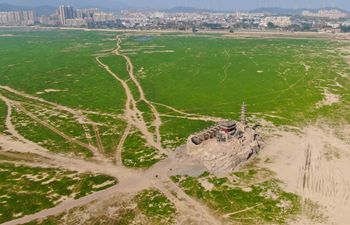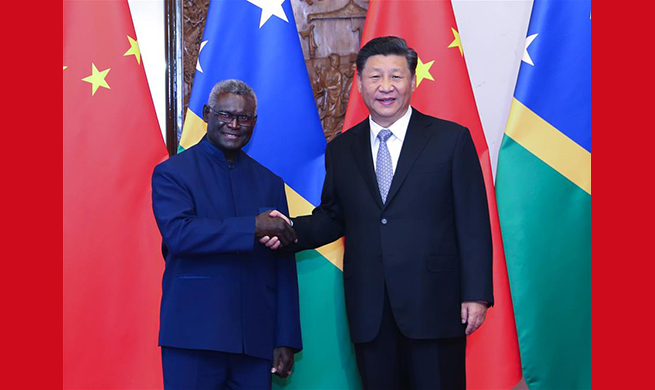MANILA, Oct. 10 (Xinhua) -- The Philippine economy is projected to grow 5.8 percent this year and 6.0 percent in 2020 and 2021, according to the Philippines Economic Update report released on Thursday by the World Bank.
The World Bank said the Philippine economy remains strong amid rising global uncertainties.
"Weakening global economy, rising protectionism, the U.S.-China trade spat, and the slowdown in public investments in the Philippines in the first half of the year have tempered the country's growth prospects," the World Bank said in a statement.
Nevertheless, the bank said strong private consumption -- due to lower inflation, higher employment rates, robust remittances, and rising wages -- and a recovery in public investment spending will keep the economy buoyant.
Also, the bank said the services sector will drive growth fueled by the continuing expansion of financial services and tourism.
"Given the global environment, resuming the fast pace of expansion in infrastructure and human capital spending will be key for the Philippines to regain higher growth momentum while continuing to lay the foundation for greater inclusion," said Mara Warwick, World Bank Country Director for Brunei, Malaysia, Thailand and the Philippines.
"Timely passage of the 2020 budget and decisive action on the country's tax reform program will remove uncertainties and help the private sector make timely decisions, boosting job creation," Warwick added.
The report projected that the Philippines will sustain progress in reducing poverty despite the temporary slowdown in economic growth in the first half of 2019.
According to the report, more workers are finding gainful employment outside agriculture, real wages are rising, and inflation rates are stabilizing.
Using the World Bank's 3.2 U.S. dollar-a-day poverty rate, the report said the poverty incidence is estimated to have declined from 26.0 percent in 2015 to 20.8 percent in 2019, a result of the growth of incomes among poor households.
The poverty rate is expected to dip further to 19.7 percent in 2020 and 18.7 percent in 2021, added the report.
The report stressed that promoting competition to generate quality jobs will enhance the impact of growth on poverty reduction in the Philippines over the long term.
As many critical sectors of the country are dominated by a few players, the report recommended reforms to enhance competition in Philippine markets, including streamlining burdensome administrative procedures for businesses to make it easier to start a business, generating more competition in markets.
The report also recommended that the Philippines eliminates restrictions on foreign and domestic investors to help level the "playfield."













